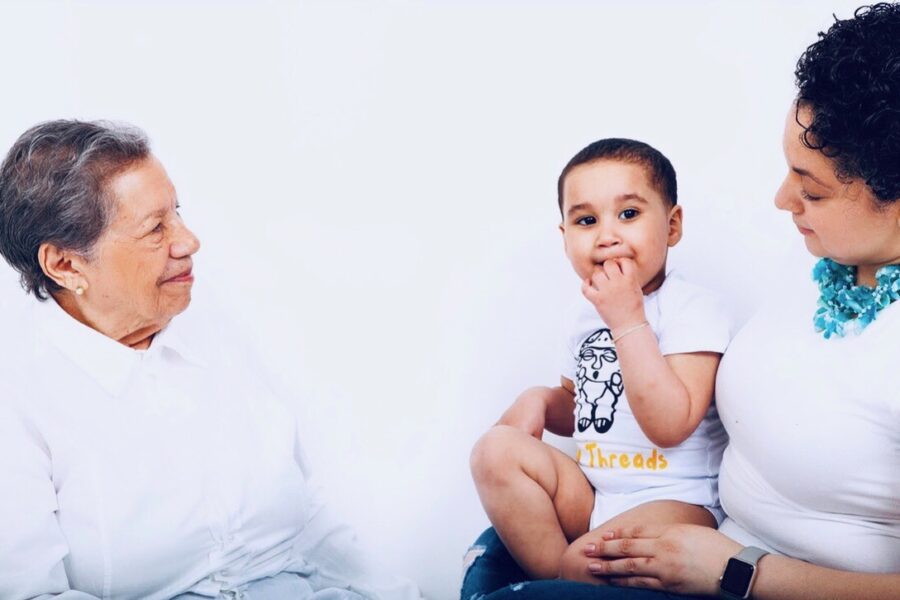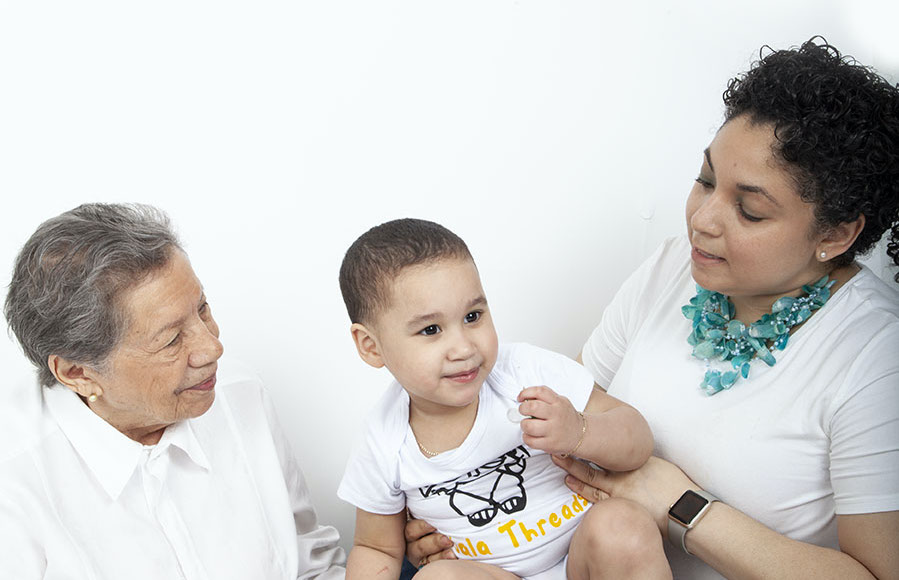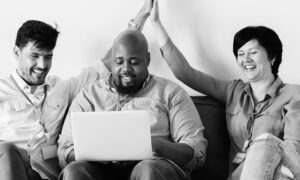
Meet Ramona, a full-time small business owner who lives in South Bronx, New York.
Tell me about yourself.
I’m a first-generation graduate with a Master’s degree. Right now, it’s just myself and my pets and we live in public housing. I’ve been living in public housing for four and a half years now.
When the $1,200 federal stimulus came in last year, it really helped. The additional money I received from self-employed unemployment also helped me establish my savings, which I haven’t been able to in years.
How did Ojala start and what are your goals for your company?
Prior to my nephew being born, I had spent ten years living in Hawaii, connecting with my indigenous background. I fully immersed myself in the Hawaiian culture and the symbolism. When I was living in Hawaii, I bought him these unique tops with culturally inspired drawings and sayings.
One day, I was changing him when I realized that all his clothes looked the same. I remember Googling “onesies for Hispanic babies,” but was so appalled when I saw a onesie that read “Bad Hombre”—that was not okay. It was so inappropriate.
That’s when I got to talking when a Hawaiian friend of mine, Jim, about starting a clothing business for Hispanic culture inspired clothing. He’s still my mentor to this day. We started meeting once a month, and after nine months, the business was incorporated. In addition to making our brand culturally conscious, I also wanted to have our products be environmentally friendly.
All of our designs very boldly say, “I’m indigenous and I’m Hispanic.” I try to incorporate a sense of who we are as a community with every piece of clothing. When I see my babies wearing my designs, it’s almost a protest. There’s nothing bolder than putting on those clothes. ABC7 recently featured us for Hispanic Heritage Month, too.
Prior to starting my company, I had always worked in government. I already knew that there were a ton of resources out there to help me get started. I started working with different programs like Start Small, Think Big to help me get my vision off the ground. Start Small, Think Big is a mentorship program from Columbia University that partners with small businesses like mine. In addition to helping me create my brand, they helped me get a better picture of my current financial situation and set up Google ads for a few months.

I am a member of SaverLife, social entrepreneur and founder of Ojala Threads Inc. We design premium baby onesies inspired by indigenous Hispanic heritage. Our Sales Support advocacy work focused on criminal justice reform, public housing, and public transportation in the South Bronx. To learn more about our story and impact on our community visit www.ojalathreads.com
Could you tell me more about the impact your business has on your community?
We have a huge social responsibility agenda. It’s so important to me that my company is an asset to my community. Where I live, more than 50% of the people live below the poverty level. 75% of the people that go to Rikers are from three neighborhoods in my city. The same way it takes a village to raise a child, it takes a village to lose them.
I’ve lived in public housing for the last five years, and my *grandmother’s been here as well for the last 29 years. When I moved back from Hawaii to New York, I wanted to be with my *grandmother and spend her golden years with her.
To me, this is one of the last places you can thrive. While your rent is 30% of your income, the living conditions are deplorable. For example, the elevators have been out 80% of time for the last two months. Public housing is being threatened where I live, and Ojala is trying to foster those necessary community conversations. We have meetings every week and facilitate conversations about the privatization of our public housing.
I’d love to have the Ojala staff to do community responsibility work. I love what I’ve created, but I think once the designs are made, eventually I want people to take on some of the responsibilities. All my jobs have been related to outreach and community development.
Ojala has redefined what success means to me. I don’t know if I could do what I do if I didn’t feel the responsibility to do it.
How have your sales been like during the COVID-19 pandemic?
It’s really been a struggle these last couple of months. 80% of our sales used to come in through pop-up shops, but since March we’ve had to pivot and turn our in-person shops into an online platform. It’s an investment to host a website. I have an intern who helps with graphics and expanding the catalog, but it’s still a lot of work. We got $50 in sales last August, and in September and October, we got about $70 in sales. If it weren’t for the grants to keep us afloat, we wouldn’t be able to go on.
How do you feel about SaverLife?
I found out about SaverLife when I received an Emergency Response Fund grant last spring. When I received that money, I was able to use it to pay down my credit card debt.
Also, the financial coach I met through SaverLife told me about Disability Discharge, which really helped me with my student loans.
*After we interviewed Ramona last year, her grandmother passed away shortly after on December 29, 2020 due to complications associated with COVID-19. Ramona and her family are in our thoughts and this Saver Story is dedicated to her grandmother.


